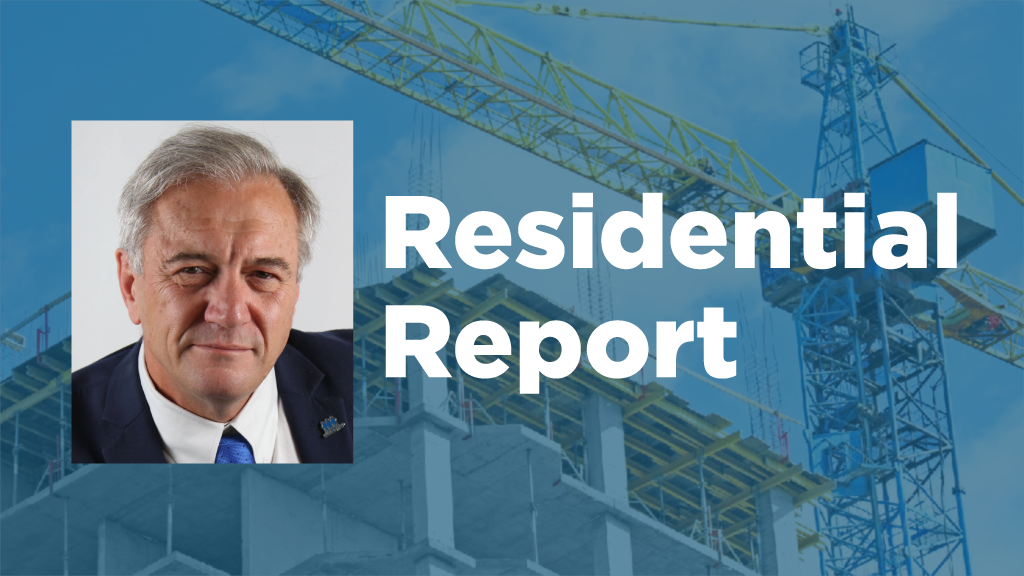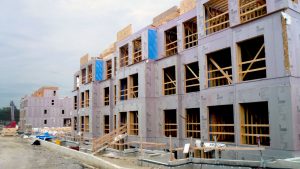Ontario builders appreciate that the federal government has taken steps to cut sales taxes on new homes for first-time homebuyers, as it signals much needed and long-awaited progress.
The feds recently passed legislation that eliminated the GST for first-time purchasers on new homes valued up to $1 million. Meanwhile, the government also reduced the sales tax for first-time buyers on a sliding scale for homes that are purchased between $1 and $1.5 million
Importantly, with the Ontario government thinking about following suit with a cut to the HST, it could amount to substantial savings of up to $130,000 in sales taxes on a home worth $1 million.
The taxes are paid by the developer at the time a building permit is approved. Ultimately, they are passed on to new home buyers in the form of higher prices, so scrapping them would be welcome.
The big question, though, is whether the reductions would be enough to spur more homebuilding and allow us to tackle the housing supply and affordability crisis that we are now in.
I think not.
Our housing situation is dire and initiatives such as these would have to be augmented with additional and serious follow-up measures.
To move the needle on housing, I propose that we go a step further and remove the GST and HST on all new housing. That would really stir the market.
In Ontario, such a tax fix would drop the price on a $1-million new home for a buyer to $870,000. Encouragingly, Premier Doug Ford has indicated he is willing to adopt the measure if the feds take similar action.
In response to a question by QP Briefing, Ford said, â”If the federal government came and waived the (HST), the federal side, then we’d look at the provincial side as well.â
Not to be repetitive, but the GST/HST cuts would be for all new housing â not just for those buying homes for the first time. That would be true progress and makes sense for a number of reasons.
For one, seniors may be reluctant to downsize because of the exorbitant sales taxes theyâd have to pay on buying another new home. If the taxes were removed, theyâd be more likely to buy smaller new homes, which would free up family-sized homes for those looking to enter the market.
Second, the savings would enable more families to qualify for mortgages, which would result in more new home sales and the construction of additional homes, thus adding to the supply.
A report by Desjardins Economics indicates first-time Canadian homebuyers could save up to $240 on their monthly mortgage payments if they were to buy a new home with an all-in, tax-included price of $1 million. The required down payment would also be somewhat smaller and closing costs would be reduced, helping buyers of new homes to get their foot in the door sooner.
For the math on the matter, I defer to a Parliamentary Budget Office study that found if the federal rebate was expanded to all owner-occupiers who buy new homes, it would cover up to 65,000 homes per year and cost about $4 billion annually, compared to roughly $2 billion a year if itâs allowed for just first-time homebuyers.
Now is the right time for the two levels of government to cut the sales taxes on all new homes as high financing costs, regulatory delays and uncertainty among buyers and builders created by the trade war and tariff battle with the United States are creating hurdles for the market.
The residential construction industry is experiencing a significant correction. Though governments at all three levels are putting in place measures to address housing supply, the initiatives by themselves are not enough to turn the market around. More action is necessary to make progress.
Alarmingly, Ontarioâs housing starts in the first quarter of 2025 were the lowest of any quarter in the last 15 years, according to a report released by the Financial Accountability Office. Housing starts totalled 12,700 units in the first quarter â a 20.2-per-cent drop from 15,900 units in the fourth quarter of 2024. It marked the lowest level of housing starts since Q4 in 2009.
CMHC released an eye-opening report on the state of the new condo market. In Toronto, for example, it would take 58 months, or nearly five years, to sell the available stock at the current rate of sales. A record high 25,572 condominium apartments were completed in 2024 in Toronto.
Meanwhile, project cancellations have increased. Condo apartment unit cancellations in 2024 were five-fold higher than they were in 2022 in Toronto. A GTA Condo Market Outlook published by TD Economics estimates that condo values will fall by 15 to 20 per cent from their peak in summer 2023 by the end of this year, with 10 per cent of that decline taking place in this year alone.
TD expects the market to be better in 2026, due to lower interest rates, but chances of a âheroic reboundâ are slim because population growth is expected to slow and prices will remain high.
The initiatives undertaken so far are helpful and swinging the pendulum in the right direction. However, more seismic action is needed.
Richard Lyall is president of the Residential Construction Council of Ontario (RESCON). He has represented the building industry in Ontario since 1991. Contact him at media@rescon.com.








Recent Comments
comments for this post are closed